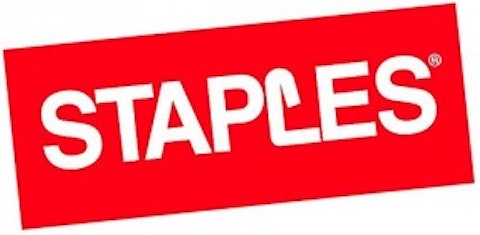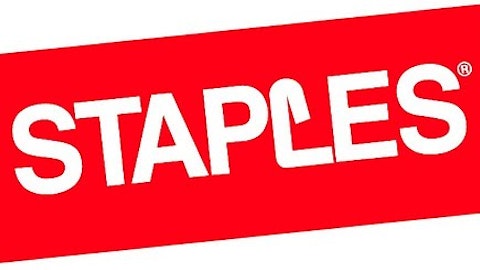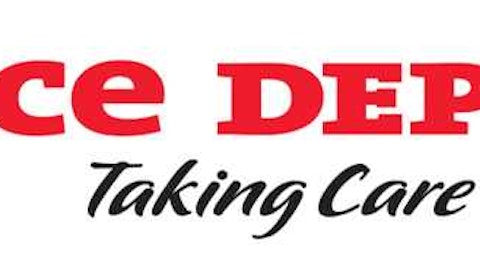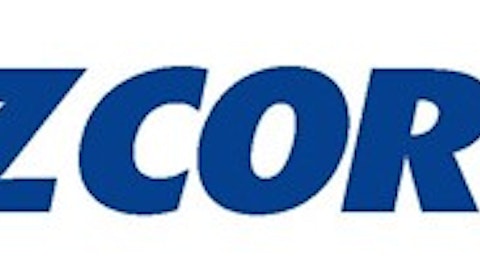Earlier this summer, office supplies retailer Staples, Inc. (NASDAQ:SPLS) took a detour from its typical path of supplying businesses with paper, ink, and paperclips and started selling barbecue grills, coolers, and patio furniture ahead of Fourth of July celebrations.
While the retailer tried to play it off as an extension of its breakroom supplies that it offers to businesses, I suggested the rationale was a stretch far removed from the selling of paper towels and coffeemakers. Rather than building on a core part of its business and taking it in a new direction, Staples, Inc. (NASDAQ:SPLS) was really deploying an offshoot of “deworsification,” a concept coined by famed money manager Peter Lynch to highlight when a company moves so far afield from its core competency that management’s time, effort, and money are wasted.

And the move doesn’t seem to have helped boost the slack sales the office supplies leader has been experiencing. Revenues for the second quarter, which ended on Aug. 3, fell 2% to $5.3 billion as the summer spectacular failed to generate additional foot traffic, with same-store sales dropping 3% year over year.
Although its breakroom business did witness some growth, it wasn’t nearly enough to offset the declines elsewhere. Which is why the news it just scooped up online office supplier Lonesource is a welcome reprieve from the recent false starts and poor management decisions made over the years. Staples, Inc. (NASDAQ:SPLS) still hasn’t recovered from the ill-timed acquisition of Corporate Express just before the market imploded, and it’s had to shut down its European printing business.
Of course, the problems aren’t wholly of management’s making, as the industry reels from the impact of the recession. That factor alone accounts for why rivals Office Depot Inc (NYSE:ODP) and OfficeMax Inc (NYSE:OMX) are forced to seek solace in a merger that is still pending completion. I’ve argued before that the industry and Staples, Inc. (NASDAQ:SPLS) would have been better off had the Justice Department not quashed its attempt to acquire Office Depot Inc (NYSE:ODP) a few years back, but regulatory hubris supplanted marketplace reality so that we ended up with three damaged businesses spread too thin instead of two healthy rivals.
The trio now are doing what they can to right-size, closing down hundreds of stores (and they will likely close down hundreds more when the Depot/Max merger goes through), and Staples, Inc. (NASDAQ:SPLS) acquisition of Lonesource shows management is thinking about its future.
While the tiny company nominally provides paper and pens just as Staples, Inc. (NASDAQ:SPLS) does, it seems its real forte is in providing businesses with all sorts of back-of-store stuff like janitorial supplies and, yes, breakroom needs. It also comes with an business oriented e-commerce platform that could help it offset the inroads Amazon.com is making on its operations.
Staples has the second-biggest Internet presence behind Amazon in terms of SKUs offered, and last year reorganized its operations by putting the same person in charge of its stores and online business. Couple that with the delivery service Lonesource brings with it, and Staples complements the focus it has for its own delivery division, which goes hand-in-hand with e-commerce and which accounts for the majority of its annual sales.
Until this quarter’s results were released, Staples had been on the road to recovery with its stock hitting new 52-week highs. Despite the hit it took — shares are down 16% — an economy clawing its way back, an industry that’s been necessarily slimmed down, and a management team that’s now playing to its strengths all suggest this will only be a temporary break for the office supply king.
The article Staples Takes a Break originally appeared on Fool.com and and is written by Rich Duprey.
Fool contributor Rich Duprey has no position in any stocks mentioned. The Motley Fool recommends Amazon.com. The Motley Fool owns shares of Amazon.com and Staples.
Copyright © 1995 – 2013 The Motley Fool, LLC. All rights reserved. The Motley Fool has a disclosure policy.




